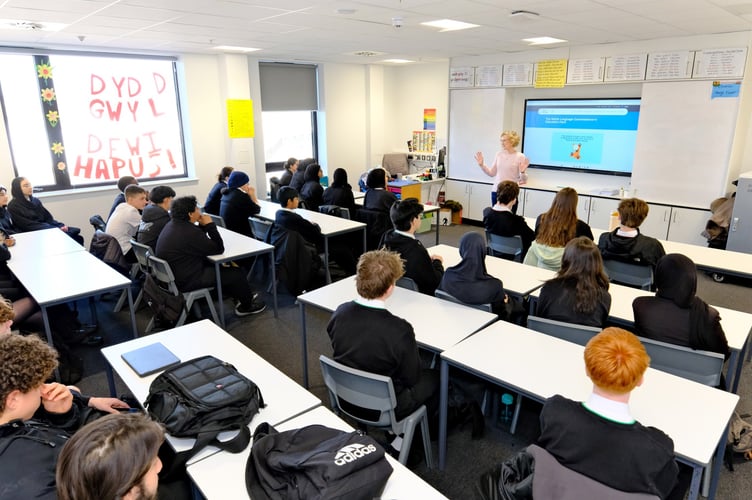A new report published today (May 30) by the Welsh Language Commissioner gives an insight into the use of the Welsh language by children and young people inside and outside the school gates.
While the use of Welsh within the school and the attitudes towards the language were encouraging, the use of it by the young people socially, including on social media, was limited, with a significant proportion of those surveyed saying that English was their main language when using social media.
Questionnaires were completed by over 1600 children and young people aged 11-21 across Wales, and six focus groups were held. The aim was to try to gain a better understanding of the language habits of children and young people as they engage with their families and friends in various activities outside of school, in online communication, on social media, and when receiving services.
According to Efa Gruffudd Jones, Welsh Language Commissioner, the information gathered will help inform the Commissioner's future work, as well as others: "Children and young people are vital to the future of the Welsh language. This wide-ranging research offers us an insight into the use of Welsh by young people.
"Our five-year strategic plan published earlier this year responds to the main conclusions of this research and outlines how I will take action to encourage greater use of the Welsh language among young people. The research also provides us with an evidence base as we draw up our manifesto proposals for the Senedd election in 2026, which will be published within the coming months.
"There is no doubt that the report highlights significant challenges particularly in the field of social media but it also identifies opportunities, in the area of sport for example, and I will prioritise creating and strengthening strategic partnerships in order to further develop those opportunities."
According to Myfanwy Jones, Director of Mentrau Iaith Cymru, there is a need to expand the opportunities to use the Welsh language outside of school: "It is clear that there are a large number of respondents who do not use Welsh very often outside of school but are generally supportive of the Welsh language and wish to have more opportunities to use the language.
"As part of our remit, we are constantly looking for further opportunities to expand our community activities in order to offer opportunities for young people to use the Welsh language naturally. The report shows that that this work is crucial and we will work with the Commissioner and other partners to develop it further in the future."
The report highlights the need for the Welsh Government, along with other organisations, to continue its work of considering approaches to changing attitudes and behaviour in order to encourage more children and young people to consider the Welsh language as belonging to them.
Confidence in using Welsh is important, according to Efa Jones, a first year university student and former pupil at Ysgol Bro Dur in the Eisteddfod’s area: "Me and my friends spoke Welsh together at school, but we speak a mix of both Welsh and English when we're not at school. I think social media is responsible for that as English is the main language that is used there.

"We would be more willing to speak Welsh when using local services if those were better promoted. But overall, we're glad that we're able to speak Welsh and want to continue to do so."
Some of the report's key findings include:
• The general use of the Welsh language by children and young people outside school is limited
• Positive attitudes towards Welsh are evident among fluent Welsh speakers and those who learned Welsh at home, with the majority proud of their ability to speak Welsh
• The education system plays a key role in providing opportunities to learn and use Welsh
• Children and young people are more likely to use Welsh in sports activities, especially with coaches and leaders
• The use of Welsh when communicating online and on social media is limited, with the majority using English because it is easier and reaches a wider audience
Using this research, NSPCC Cymru has published a briefing that reflects on children’s use of social media in Welsh from a safeguarding perspective.
Cecile Gwilym, Policy and Public Affairs Manager at NSPCC Cymru, said: "The Welsh Language Commissioner's report offers some of the only evidence to date into children and young people’s use of Welsh on social media, providing an important insight into their experiences and how they communicate online through this medium.
“We believe the findings need to be carefully analysed to ask whether measures designed to protect children on these platforms equally apply when children are using social media in Welsh or in a combination of Welsh and English.
“The findings show this is an area that requires further research and attention particularly from Welsh Government, Ofcom and technology companies.
“We look forward to working with the Commissioner's office over the next year to further develop this work."
The results of this research reinforce the conclusions of the Commission for Welsh Speaking Communities’ report on the need for more active and purposeful community language planning. The Commissioner's office will now be meeting and discussing with various relevant partners and organisations in order to act on the recommendations of this work.





Comments
This article has no comments yet. Be the first to leave a comment.